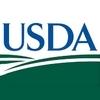Small molecular weight metabolites regulating growth and immunity as postbiotic antibiotic alternatives
Mounting regulatory pressure, consumer concerns about antibiotic resistant bacteria, and competition from alternative protein sources have prompted the poultry producers to search for novel antibiotic alternatives. Recently, Bacillus spp. as a direct fed microbial (DFM) is gaining in popularity as an antibiotic alternative. A metabolomic approach was used to characterize and identify host- and microbiome-derived biochemical compounds in the ileal content of broiler chickens which were fed dietary Bacillus subtilis as DFM. Fourteen-day-old broiler chickens (n = 196) were fed a basal diet or a diet supplemented with Bacillus subtilis 1781 or 747 as DFM. The chickens and the amount of feed that the broiler chickens consumed were weighed at 21 days of age for growth performance measurement. Eight chickens per group were euthanized and their ileal content harvested for metabolomic profiling. From 14 to 21 day of age, body weight gains of chickens fed diets supplemented Bacillus subtilis 1781 and 747 were significantly increased compared to those of chickens fed basal diet. Compared with unsupplemented controls, the levels of 83 biochemicals were significantly altered (25 increased, 58 decreased) in chickens given the Bacillus subtilis 1781 DFM-supplemented diet, while 50 were significantly altered (12 increased, 38 decreased) with the Bacillus subtilis 747 DFM-supplemented diet. The changes in the levels of intestinal biochemicals provided a distinctive biochemical signature unique to each Bacillus subtilis-supplemented group. These results provide the framework for future studies to identify natural chemical compounds that can be used for improving poultry growth performance.
Keywords: antibiotic alternative, Bacillus subtilis, gut metabolite.
Abstract presented at the 3rd International Symposium on Alternatives to Antibiotics 2019.






















